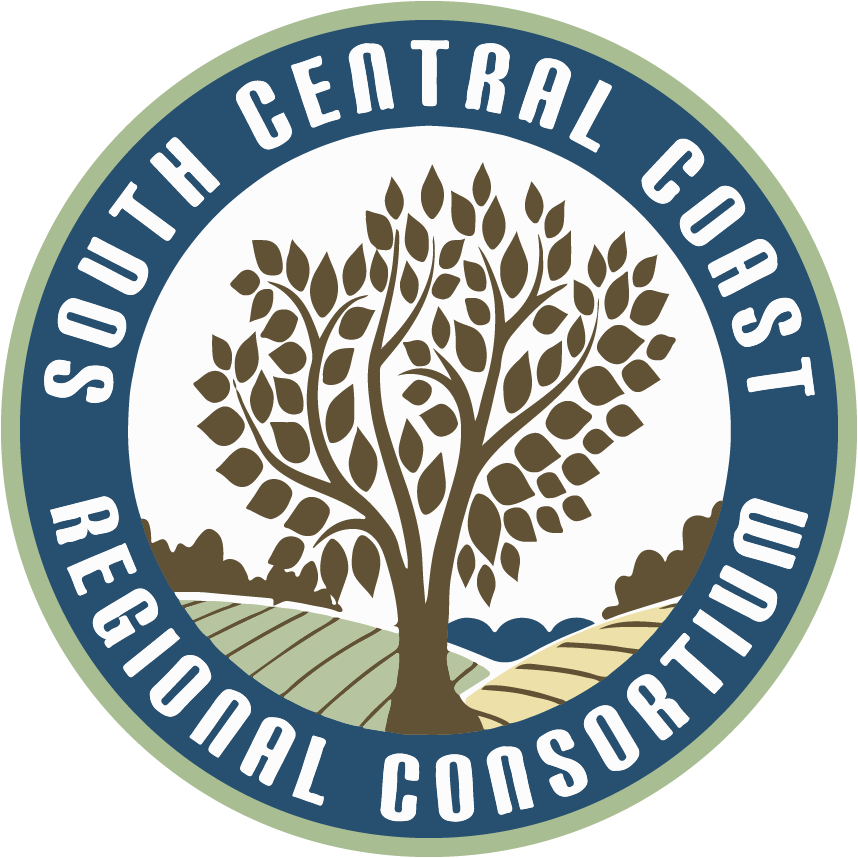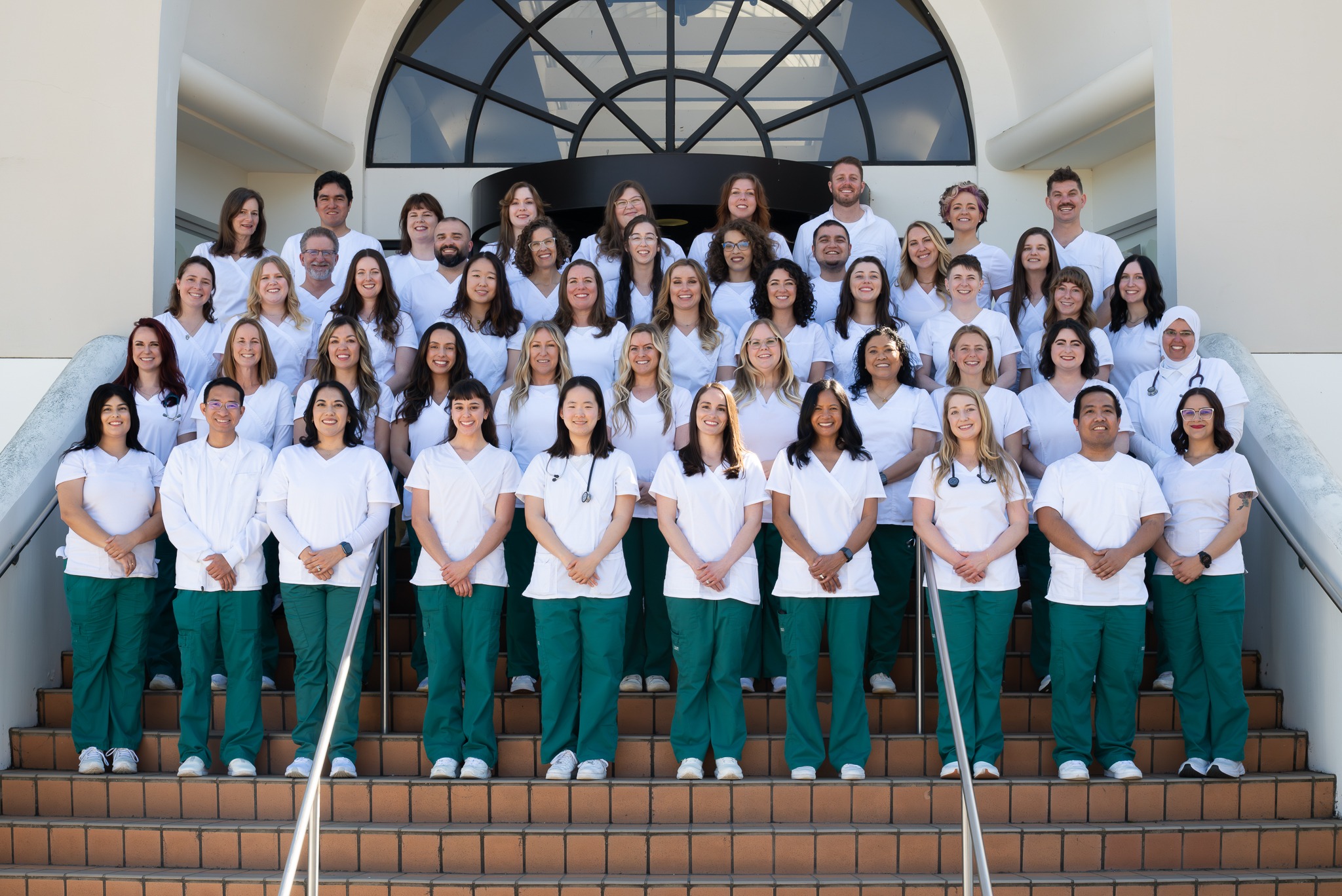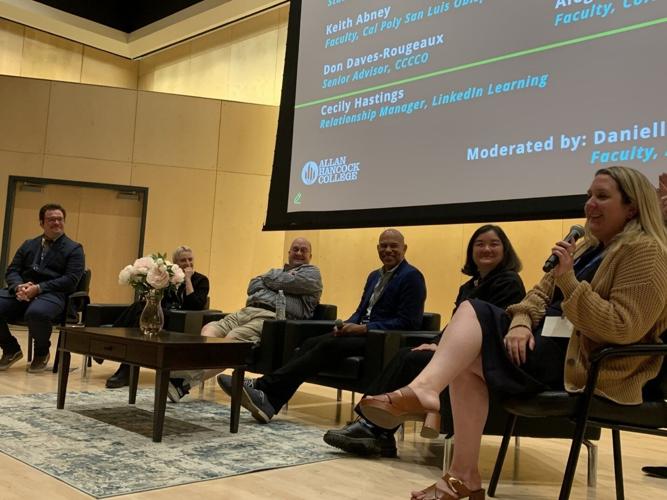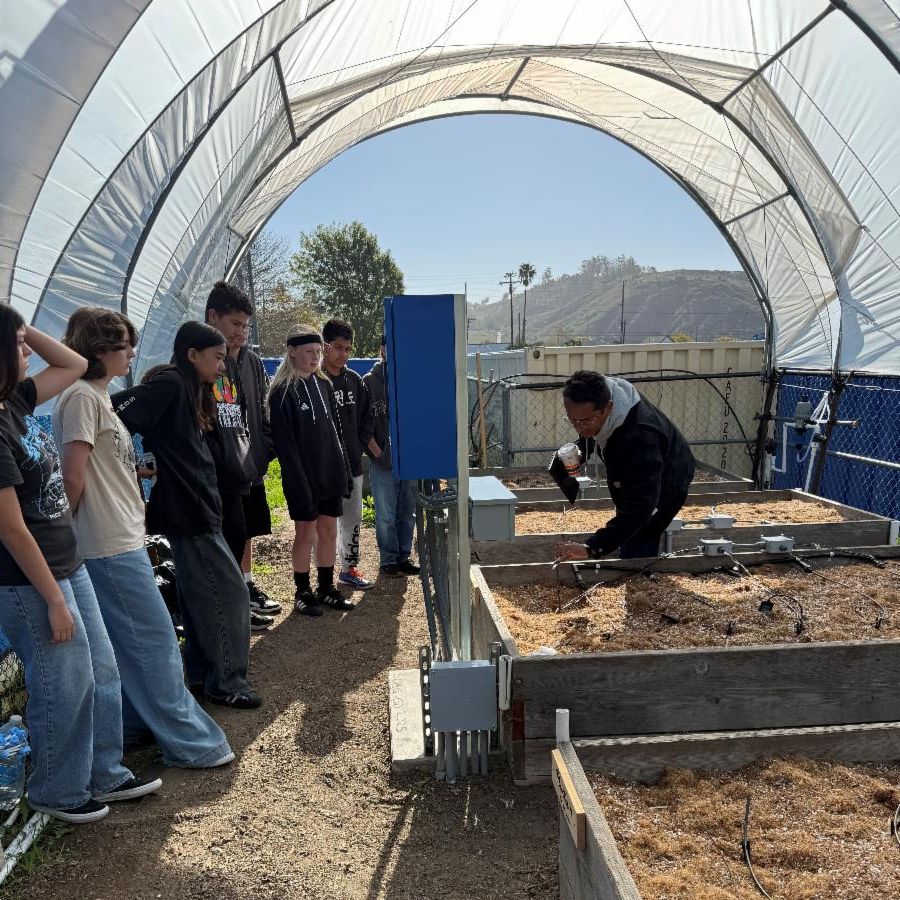It was only about 10 a.m. on April 5 and the air in Santa Maria was already feeling balmy. The warm morning sun poked through the clouds and shone heavily on portions of Allan Hancock College’s student garden. The lot smelled of freshly cut grass and echoed with the incessant chirps of busy birds and crunching gravel as a few students dug holes that would soon be home to fruit trees.
It’s not a huge plot of land, and although it sits directly across the street from Hancock’s campus, the garden still feels removed, remote, and peaceful. It’s Erin Krier’s comfort zone, and like many farmers, the Hancock ag professor prefers the solitude of working in the fields.
But in the past few years, Krier has noticed a worrying trend: Farmers aren’t sharing their stories, and when agriculture-related controversies erupt, they aren’t defending their practices.
That hesitancy to speak up can lead to one-sided news stories and ultimately to the spread of misinformation about agriculture. Then, Krier said, real policies and laws are passed based on those falsities, usually by politicians who don’t really know much about agriculture.
Fewer individuals in the U.S. have a direct hand in the agricultural industry now than ever before, and according to data collected by the American Farm Bureau Federation, farm and ranch families make up just 2 percent of the U.S. population. That means fewer members of the general public are exposed to the world of agriculture, so fewer understand where the nation’s food comes from and everything that goes into producing it.
The disconnect between the realities of agriculture and public perception has created a need for knowledgeable and passionate people willing to speak on behalf of real farmers and ranchers.





